7 Music Production Tips I Wish I'd Paid More Attention To
Music Production
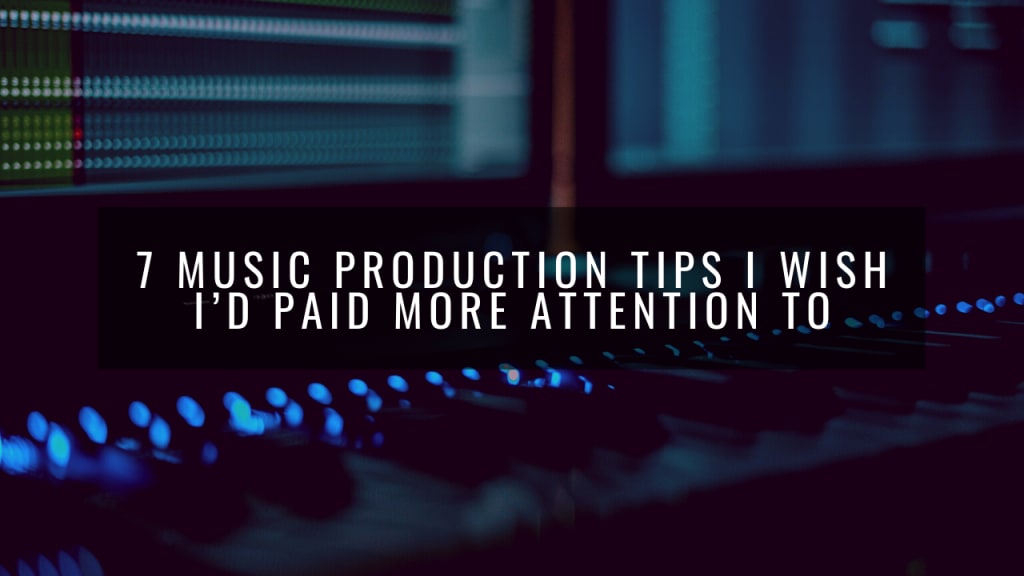
Years ago, after I got past the very beginning stage of learning how to produce music, I started to ignore a lot of “basic” advice I would hear when I was looking for ways to get better. I would think something along the lines of, “I already know that, I’m sick of hearing this shit, give me something more advanced”.
Now that I’m a bit further in, I realise I was just being naïve and/or arrogant, and had I been a bit more open to the advice I was listening to, my skills might have developed a lot faster, and I probably wouldn’t feel so fuckin’ behind.
Turns out some of the things I once overlooked have now become a primary focus when I’m producing. I have a lot of catching up to do.
If you’re as impatient as me, you may have overlooked this shit, too. If you’re a beginner, don’t overlook this shit. These are things you hear all the time – so don’t roll your eyes when you go down the list – but they are all worth repeating over and over until the message gets through.
Here are 7 music production tips I wish I’d paid more attention to.
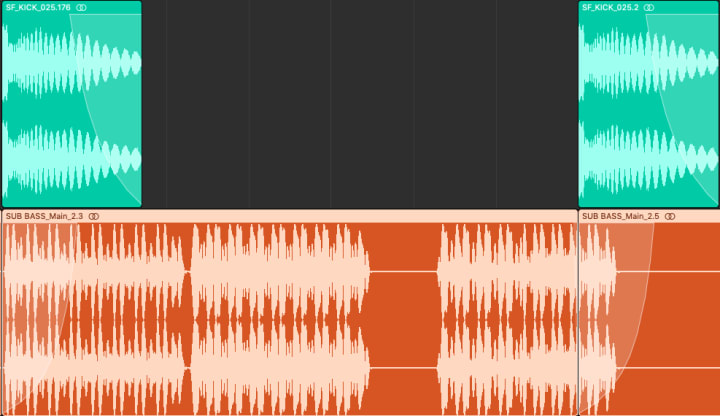
#1. Pay attention to your kick and sub.
No matter how many times I heard this, I always thought I was doing enough when I wasn’t.
Paying attention to your kick and sub does not necessarily mean simply sidechaining your sub to your kick and then walking away. You might think you’re fine (and you might be!), but you might not even know what’s happening if you’re not in the right listening environment.
I fell into a really stupid habit of assuming that everything I could hear was everything that was going on down there. I did this as I listened back to my shitty, flabby track on my KRK Rokit 6’s in my poorly treated room, wondering why I hated myself.
If you’re serious about getting your track in a good place, spend some time down there.
What you can try:
If your sub and kick are occupying the same frequency range, make sure your sub isn’t playing when your kick is. Nowadays, I like manually fading the sub in around the shape of the kick so there isn’t a weird volume dip between the kick and sub, which can occur when sidechaining is applied incorrectly. You can also use a plugin like Volume Shaper or LFO Tool to get around the issue.
You can sidechain, but I would recommend using an oscilloscope to see the waveform of your track in real-time. Run your kick and sub through it and check to make sure there are no volume dips that are going to make your low-end sound uneasy. I saw Fox Stevenson talking about this, and he knows what the fuck he’s doing.
Use a spectrum analyser to see where your sub is hitting in relation to your kick and the rest of your track. It could be overpowering or underwhelming, and you might not even know if you can’t hear it properly. Having a visual aide helps, bigtime.
Use EQ to carve out enough space for both your kick and sub to work together. If you’re going to rely on that, though, make sure you’re equipped to do it correctly (you can see/hear what you’re doing) because this could mean losing energy if you’re not paying attention.
Choose appropriate samples so your sub and kick don’t overlap when they play together. Kick high-passed at 70hz and sub low-passed around the same is an example but be careful even with this – strange things can still happen depending on other factors (like having a limiter slamming the master).
I know you’ve almost definitely heard all of this before but pay attention to it. Doing any of these blindly will not necessarily get you where you want if you’re not being careful and getting the low-end right is just so fuckin’ important. Give it the love it needs, and you’ll love your track.
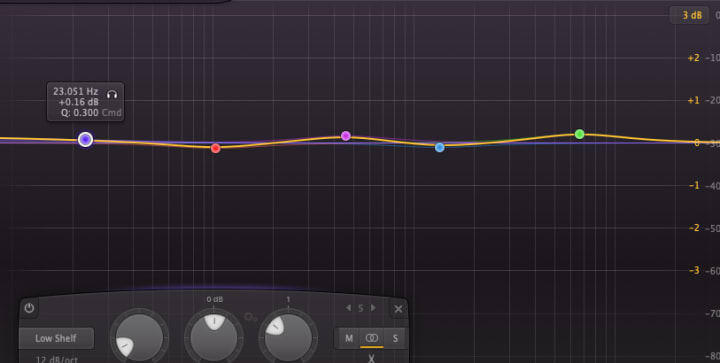
#2. Small EQ changes can go a long way.
I overlooked this for so long it’s almost embarrassing.
It’s fun to make dramatic changes to your sounds or your mix with EQ, and it’s sometimes needed to get what you want (like in the sound design stage), but don’t be fooled into thinking it’s always the way to go, especially when it comes to mixing your track.
Up until very recently I was using EQ to compensate for a lack of balance between the elements in my tracks. I’ll talk more about balance later, but all you need to know at this stage is that this is not good.
What this meant was that I would always think my sounds needed more EQ than they actually did, because things just didn’t seem to be working together like I wanted them to.
So, I would boost and cut drastically to try and solve the problem – and it never did. All it did was throw my balance out even more.
Small EQ bumps and cuts can take you a long way and doing this on multiple elements can change the sound of your track more than you think. A subtle boost on one element and a complimentary dip around the same frequency area on another will likely get you a better result than being aggressive and impatient trying to get where you want, even if it’s not as apparent right way.
Don’t let your ears trick you into thinking a more exaggerated effect is better. I did for years and I never had anything I was comfortable with releasing (still sitting at one release since I started this blog).
Have you ever tried EQ matching on your master buss to help fine-tune the shape of your track? This is a perfect example of what I’m talking about – lots of small changes applied to create a noticeable (and good) result.
What you can try:
If you’re able to, you can change your EQ settings so the visible dB range is smaller. What this means is that if you’re an aggressive EQer, your brain will think you’re still making the same boosts and cuts, but you’re actually being gentler. You’ll feel like nothing’s changed, but the results you get will be significantly better.
Turn down your volume. You’ll be able to hear subtle changes in more detail and make smarter decisions. This is actually pretty hard to do because we like loud, but it’s definitely worth training yourself to be disciplined about it.
A classic thing to do is to exaggerate the area you want to affect so you can hear what it’s doing, and then back way off on how extreme your cut/boost/shelf/whatever is. You might not be able to hear the difference right away, but trust me, it’s doing something.
I’m not saying there isn’t a place for extreme EQing – that’s how cool shit can happen! Just don’t do it for the wrong reasons. Again, if the volume balance between your elements is good, you probably won’t need to make any crazy changes.

#3. Choose the right drum samples.
This is a tricky one, because I think part of getting this right is developing your ears enough to know what the right drum samples are and understanding how they work in a mix.
If you’re making dance music, there’s a 99.9% chance that your drums are going to be right up there in terms of important elements in your tracks.
We need to respect this. Just because there are millions of quality drum samples available does not mean you can just pick anything and expect it to work perfectly in the context of your track.
I don’t know why I had such a hard time getting my head around this but being lazy with my sample choices is one of the biggest reasons why I haven’t finished more stuff.
There’s a weird part of me that wants to choose samples that aren’t quite right, just so I can process the shit out of them and make them my own. To be clear, I don’t think it’s the worst idea to do shit like that, but 9 times out of 10 I’d be trying to get a specific sound which would have been better achieved by spending more time on sample selection.
Here’s why I think choosing the right drum samples is so goddamn important:
Most of the time, the drums determine the style, vibe, tone, etc. of your track. Choosing samples that don’t fit what you’re going for could result in losing direction and butchering your track. If your chill track needs a soft or dull kick and you put in a super transient-y clubhouse kick, your creative choices moving forward might not be the best and you might struggle to get a vibe going. I’m the king of fucking this up.
The wrong samples can trick you into thinking your balance is out of whack. If your drum and bass track needs a pitched up piccolo snare but instead you use a Vengeance dubstep snare with massive amounts of 200hz, things just aren’t going to sound right. You might then start tweaking things that don’t need to be tweaked and fuck everything up. Be careful!
Choosing the wrong samples can make your track sound amateur. Again, trust the man of 1000 failures on this one. I still suffer from amateur sounding track syndrome. In my opinion, a big part of the reason why a lot of professional tracks sound so professional is because their elements sound like they come from the same family. If you choose a hip-hop kick and you pair it with a clean, synthesised snare, shit is going to be weird. If that’s what you’re going for, cool, but I think it can be dangerous.
Spend the time on making sure you have the right samples for your track. If you’re not going to make your own, I would recommend spending more time than you think on finding some that are going to work. It’s worth putting in the time now, so you don’t have to suffer way down the line.
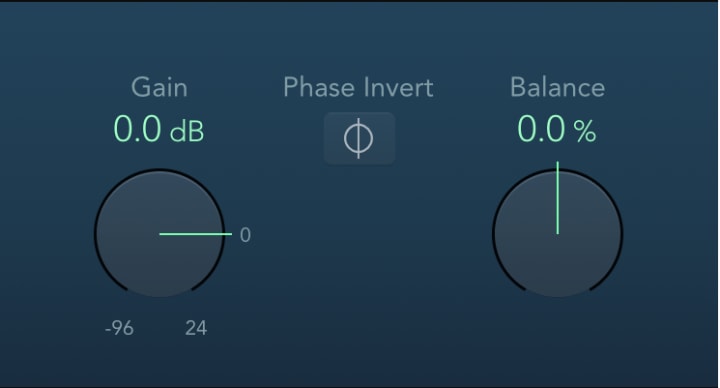
#4. Gain staging is important.
Gain staging is a term I heard again and again over the years and I always went through brief phases of appreciating it and then not so brief phases of ignoring it.
Don’t ignore it. Even if you don’t understand everything about it (I don’t), keeping your channels in check with gain staging can save you spending time on shit that I guarantee you don’t want to.
What I’m talking about is being aware of the levels of your tracks/busses, how the level of your signal changes when you add plugins, and then ensuring you compensate for any changes.
For example, if your drum buss is hitting at -10dB and you put an EQ on it which boosts the high-end by about 3dB, you need to compensate for that gain in volume.
How to do that:
This might be as simple as turning down the output gain of the plugin you’ve added to match the original volume of the signal, and it often is that simple. If the plugin doesn’t have an output knob, use your gain/utility plugin to adjust the level. Not doing so could result in losing your mix and complicating things down the line.
I recommend doing this every time you make a change to your channel/buss. If you’ve set levels that are going to help you with your mixdown later, making sure that the input and output levels of each plugin are taking that into consideration is important.
Some plugins might tell you if you’re being naughty by sounding like shit when you drop them on your channel because you’re going in 20dB too loud. That’s not the plugin’s fault – manage your shit.
If you want a bit more information on gain staging, this can help you understand it. Essentially, you don’t want anything to clip and you want to make sure you’re keeping your levels in check with every move you make in your project.
Don’t overlook this simple piece of advice because you don’t see its value. It could change more than you think.
Since I’ve started paying more attention to this, I’ve had a lot less issues with mixing. I sucked hard at mixing before – now I suck a bit less.
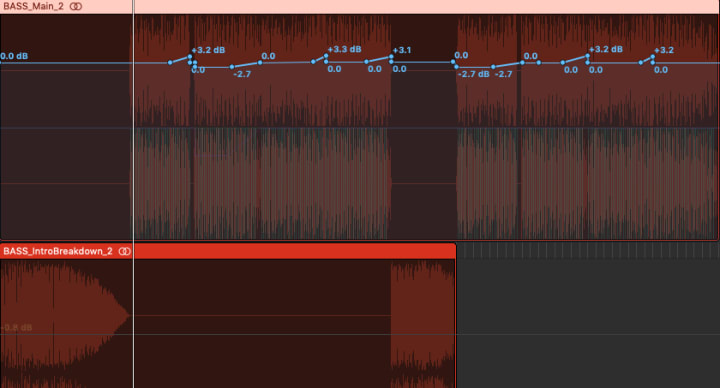
#5. Details matter.
This is kind of a summary of all of the above points (and the next one), but it’s important to go into it because this applies to everything in your project.
What I mean here is don’t settle for a sound, an EQ setting, a decision, etc. that isn’t enough or right for your track just because you’re lazy.
I used to fall into the “that’ll do” trap over and over, and it’s not cool, because it won’t do. Doing this might result in a listener saying the same thing halfway through your track before turning it off.
The difference is noticeable, even if it’s only to your subconscious. Going to the extra effort of adding that last bit of movement on a bass or tweaking an EQ to find the right colour for a sound might not sound like such a big deal but doing this every chance you get will make a huge difference in the context of an entire track.
Examples:
Here are some things I should definitely spend more time focusing on (and maybe you should, too):
Sound design. The higher quality your sounds, the higher quality your track.
Reverb and delay sends. Failure to pay attention will result in washy mud.
Volume balance. Neglecting this is the number one reason why my tracks fall apart (more on this at #6).
The effect of subtle EQ changes (refer to #2).
Fills at the end of bars or sections. Tracks can get really stagnant really fuckin’ quick if there’s not enough interest to keep things moving. Really, we want constant movement in one way or another.
FX scattered throughout the whole track. I really don’t add enough excitement in my drops, and usually this is because of a lack of FX or subtle sounds filling out the mid-upper mid-range. Don’t skimp on the subtleties! This one can be dependent on the kind of music you make, but if you feel like your track is lacking, it’s worth looking into.
The more I listen to music, the more my ears pick up on little things I never noticed before. And the more I pick up on things, the more I realise how important those things are to the track. If that ambience wasn’t in the background, that track wouldn’t put out that particularly cool vibe, etc.
Sometimes it can just take time.
Don’t mistake some of this for making decisions that might not work perfectly based on your current level of knowledge/skill. I still do this a lot – I’ll settle on a sound because it’s just the best that I can do at the time, and this will happen for quite a while with budding producers.
The more knowledge and experience you acquire, the more you’ll be able to see which parts of your projects need more attention (I’ll do a post on this soon). Until then, just do your best and experiment – that’s what I do.
Ultimately, it’s being lazy that will destroy you when it comes to making music, not your lack of skills. The effort you put into your early stuff will also be reflected in your newer stuff, because you’ll be used to going hard.
So, be good and do the work! Your tracks might take a little longer to get over the finish line, but it’s worth going the extra step. Put all of your love into every bit of your projects and you will thank yourself at the end. You’ve always got a little bit more in you than you think.
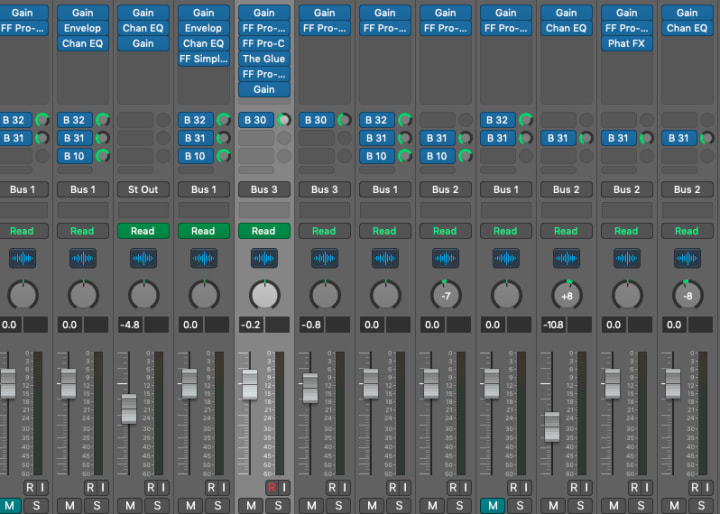
#6. Volume balance is king.
Not sure how I let this one pass me by for such a long time, but I wish I hadn’t.
I remember watching a video of Steve Duda talking about this. He said something along the lines of “I bet my audio students I could get a better mix than them by volume balancing alone”. I’m sure he worded it more eloquently than that, but you get the idea.
It’s finally stuck in my head: making sure the volume of each of your channels are balanced relative to all the others is probably the most important thing you can do for your mix.
Everyone says it’s about 80% of your mix and I wholeheartedly agree. I’m currently in the process of rescuing a few of my old tracks from the bin because I’ve realised they might not have to suffer so much if I just rebalance them.
Seriously, this is no joke. If you learn how to volume balance, you’ve opened doors all around you. All of a sudden, tracks you thought were dead get a second wind, mix problems that you couldn’t put your finger on are brought to light, and your confidence rises up above the clouds.
Realising this has helped me to see music as a completely different beast – one that I really wanna hang out with. I’m excited at the possibility of making a heap of different music that I thought I’d never be able to, because I know that if I can get the balance right, there’s a chance it might actually work out!
If you’re paying attention to volume balance, you’re on the best fuckin’ path you can be on.
How I got better at it:
I’m still not great, but I’ve improved, and that’s a big deal.
What I’ve been doing lately is bouncing out stems of tracks and importing them into a new project, so I’m working with audio only. This tells my brain that I’m not making sound design decisions or adjustments to already applied EQs. I’m focusing on balancing only for now.
Once I have my new, clean project with audio only, I’ll take all my faders down as far as they’ll go and then bring in one of the most important elements (probably a kick or snare, sometimes together). Then, I’ll bring in the next most important bit, then the next, etc.
I usually do this at a pretty low volume so my ears can hear the details better, and I’ll generally focus on the main part of the track (the drop, usually) because it’s the bit you want to build everything else around.
Doing this alone has changed my whole perspective on tracks I thought I hated. I’m not saying it will save every shit track, but it can definitely help a lot.
Please don’t dismiss this. It’s so important. Do this right and you’re winning in a big way.
Now, go dig up those old tunes and start rebalancing!
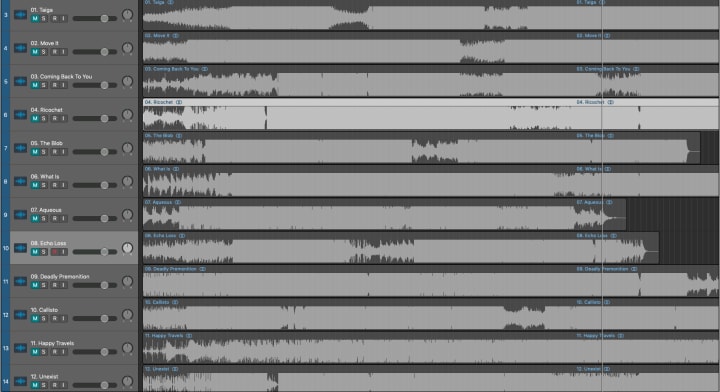
#7. Don’t try to be like someone else.
You might have a hard time talking your subconscious out of this, but it’s worth it.
Trying to be like someone else can mean a lot of things if you’re a creative person. For me it meant:
Trying to get my mixdowns too close to other tracks, resulting in a loss of direction and control over my track. Don’t mistake this for referencing, which can be really handy – I’m talking about completely changing the sound of my track to try and get it to be something else. It didn’t work, believe it or not.
Using exactly the same processes and processing chains as other producers (without knowing why or what for).
Attempting to make drums and other sounds as close to other producers’ even though they weren’t appropriate for what I was working on.
Trying to recreate the same vibe or “message” as another track. This was different to taking influence from other producers – this was failing to embrace my own path and direction. Trying to say exactly the same thing as another track is a pointless battle you’re just never going to win.
Trying to be like someone else doesn’t work and it just sucks.
Why I couldn’t be more against it:
You won’t be able to do it. No two tracks are the same. Seriously, have a fuckin’ listen. There are pretty substantial differences between even (what you might consider) the most similar tracks you know. Developing your ears and your understanding of music making will help you see this more clearly.
You don’t care about your track as much. If it’s not coming from the real you, you won’t give it the love it needs and deserves. This is legitimately a real thing – even if you get something that’s really close to someone else’s track, you won’t connect with it like you would if you were doing something uniquely yours. In fact, you’ll probably end up wanting to change it so it’s more unique. Don’t underestimate the power of authenticity.
It can make you think you’re shit and make you feel like shit. If all you’re focusing on is how to sound like “X”, everything else goes out the window. Once everything’s out the window, you’ve lost your track. The mix is shot to shit because you’ve sacrificed balance, clarity and a million other things just to get to a point you shouldn’t even be trying to get to. And because we attach making music to our identity (not good, by the way) this means that when our tracks are shit, we’re shit.
Don’t you want to be original? What the fuck are you making music for in the first place if not for yourself? It’s cool to make tracks that kill on a dance floor and that everyone will love, but the way I see it, music is a deeply personal thing. If you’re trying to be anyone but yourself, what are you even doing? Are you trying to take shortcuts? Are you being insincere? Do you just want to become famous? Do you think people will like you more if you sound like someone else? In the words of Rick Sanchez, duuuuuumb.
Ok, I might be projecting a bit there…
But do you get me?
Honestly, I can’t see any benefit (that comes from a good place) to trying to copy someone else to a T. I never saw anything good come of it, anyway.
To be clear, I still absolutely think you should watch tutorials and copy settings and remake tracks and blah blah blah. I love doing that shit. Just make sure you’re always being you. Taking influence and learning from other producers = awesome and highly recommended. Literally just copying them for any reason other than learning = pointless and inauthentic. (I might still be projecting, sorry!)
And there you go!
These pieces of advice won’t automatically make you amazing (I’m still not, after all this time), but they will help, and hopefully they’ll save you going through what I did.
As I develop my skills more and more, I’m sure there’ll be new things that pop up that are really important to my music making. When they do, I’ll share. In the meantime, you can have a look through my other posts.
Any pieces of advice you’d like to add? Let me know! I always want to learn more.
Thanks for reading!
Cheers 🙂
Like the list thing? You can check out 10 Plugins I Can’t Make Music Without if you want to read more!
About the Creator
Alex Eynstone
Music Producer | Composer | Coach.
I make music, write about things I care about & help independent artists build an online presence.
The Awakened Creative Co - theawakenedcreative.co







Comments
There are no comments for this story
Be the first to respond and start the conversation.